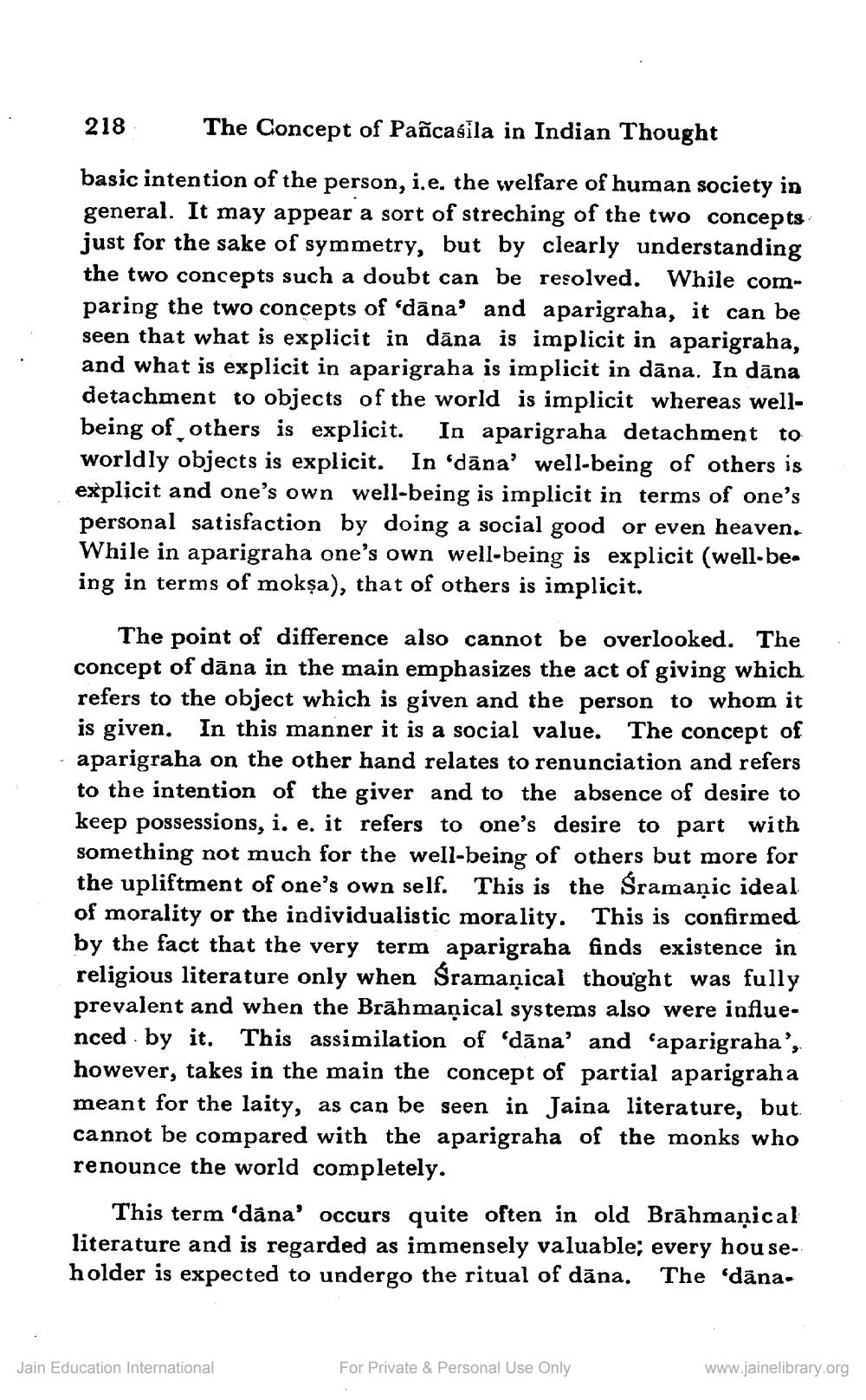________________
218 The Concept of Pañcasila in Indian Thought basic intention of the person, i.e. the welfare of human society in general. It may appear a sort of streching of the two concepts just for the sake of symmetry, but by clearly understanding the two concepts such a doubt can be resolved. While comparing the two concepts of 'dāna' and aparigraha, it can be seen that what is explicit in dāna is implicit in aparigraha, and what is explicit in aparigraha is implicit in dāna. In dāna detachment to objects of the world is implicit whereas wellbeing of others is explicit. In aparigraha detachment to worldly objects is explicit. In 'dāna' well-being of others is explicit and one's own well-being is implicit in terms of one's personal satisfaction by doing a social good or even heaven. While in aparigraha one's own well-being is explicit (well-being in terms of mokşa), that of others is implicit.
The point of difference also cannot be overlooked. The concept of dāna in the main emphasizes the act of giving which refers to the object which is given and the person to whom it is given. In this manner it is a social value. The concept of aparigraha on the other hand relates to renunciation and refers to the intention of the giver and to the absence of desire to keep possessions, i. e. it refers to one's desire to part with something not much for the well-being of others but more for the upliftment of one's own self. This is the Śramanic ideal of morality or the individualistic morality. This is confirmed by the fact that the very term aparigraha finds existence in religious literature only when Sramanical thought was fully prevalent and when the Brāhmaṇical systems also were influenced by it. This assimilation of 'dāna' and 'aparigraha', however, takes in the main the concept of partial aparigraha meant for the laity, as can be seen in Jaina literature, but. cannot be compared with the aparigraha of the monks who renounce the world completely.
This term 'dana' occurs quite often in old Brāhmaṇical literature and is regarded as immensely valuable; every householder is expected to undergo the ritual of dāna. The 'dāna.
Jain Education International
For Private & Personal Use Only
www.jainelibrary.org




